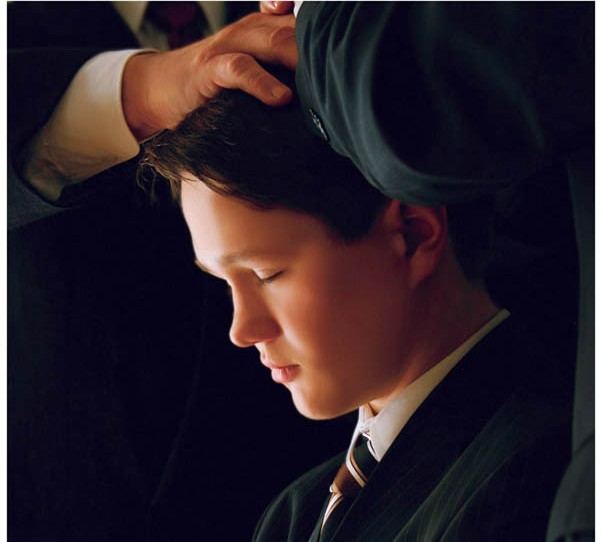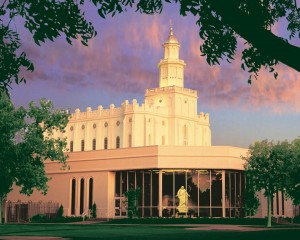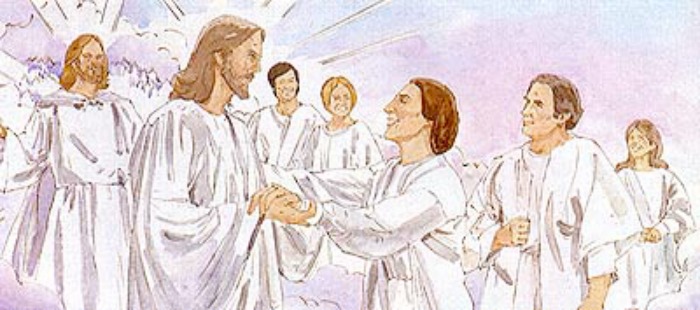Gramps,
Where did we get the idea that all ordinances had to be done by mortals?
Gordon
Dear Gordon,
The idea that all the saving ordinances of the gospel must be done by mortals is gleaned from the scriptures and amplified by the General Authorities of the Mormon Church, as well as other LDS scholars. A sampling of such comments are listed below—
“After John the Baptist conferred the Aaronic Priesthood upon Joseph Smith and Oliver Cowdery, he instructed them to baptize and ordain each other (see Joseph Smith-History 1:68-71). Why did he have them do that rather than perform these ordinances himself? Baptism, confirmation, and ordination to the priesthood are earthly ordinances that must be performed by mortals living on the earth. Performing these ordinances under John’s direction gave Joseph and Oliver valuable training and experience” (Richard O. Cowan, Answers to Your Questions About the Doctrine and Covenants, p.20)
“Whereas numerous temples will already dot the earth prior to the Millennium, their number and distribution will increase during this time, providing places where priesthood ordinances essential to salvation and eternal life can be performed in uninterrupted calm. The work of preaching the gospel of Jesus Christ to all the inhabitants of the earth will continue under his direction. Meanwhile, a similar teaching program will continue among the spirits of those who have departed this life and are waiting the day of their resurrection (D&C 138). While such spirits may hear the gospel of salvation and accept or reject it in the spirit worlds, mortals on earth will perform saving ordinances such as baptism on their behalf….Conditions of peace and righteousness will prevail during the Millennium to allow this work to proceed until essential ordinances have been made available to every individual who has lived on earth since the time of Adam and Eve” (Encyclopedia of Mormonism, edited by Daniel H. Ludlow, New York: Macmillan, 1992, p.907).
“True religion teaches that all who will be heirs of the celestial kingdom must accept the doctrines of Christ and submit themselves to the sacred ordinances of his gospel (e.g., Mark 16:15-16; John 3:3-5). Those who did not have the opportunity in life to know the Lord and his Church will be given every opportunity to hear the saving message and accept it in the world of spirits after death. The Lord’s missionaries there are the spirits of departed Saints. They are teaching the gospel in the spirit world as other missionaries are here. On earth, faithful Saints have the privilege of officiating vicariously for departed persons by receiving for them the ordinances, including baptism and the ordinances of the temple. A tremendous power that accompanied the restoration of Elijah’s keys turns the hearts of the children to identify their departed ancestors and provide the ordinances in their behalf (D&C 27:9). Conversion takes place in the spirit world, but the ordinances are performed vicariously on earth among mortals. The sealing power of Elijah’s keys makes those ordinances binding both on earth and in heaven” (Kent P. Jackson, From Apostasy to Restoration, p.230)
“Will resurrected beings during the millennium actually take part in the endowment work of the temple along with mortal beings? The answer to this question is no! That is, they will not assist in performing the ordinances. Resurrected beings will assist in furnishing information which is not otherwise available, but mortals will have to do the ordinance work in the temples. Baptism, confirmation, ordination, endowment, and sealings all pertain to this mortal life and are ordinances required of those who are in mortality. Provision has been made for these ordinances to be performed vicariously for those who are worthy but who died without the opportunity in this life of receiving these ordinances in person. You can readily see that it would be inconsistent for a resurrected being to come and be baptized for the dead. The resurrected person has passed to another sphere where the laws and blessings do not pertain to this mortal life. This is equally true of every other ordinance. If it were permissible for resurrected persons to come and do work in the temples, then there would be no reason for us in this mortal life to act vicariously for them, for they would do it for themselves (Joseph Fielding Smith, Doctrines of Salvation, edited by Bruce R. McConkie, 2:, p.178-179)
Gramps







